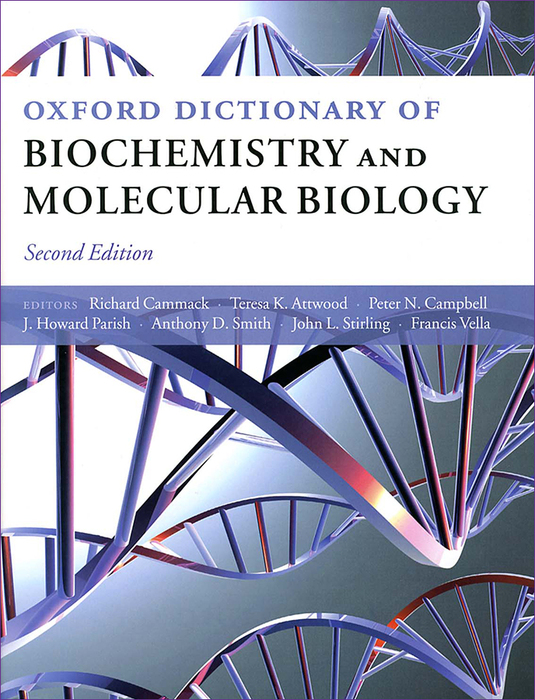Oxford Dictionary of Biochemistry and Molecular Biology 2/e
Oxford Dictionary of Biochemistry and Molecular Biology 2/e-需求單
內容簡介
Over the last few years, the language of Biochemistry and Molecular Biology has expanded enormously to the extent that few scientists can expect to be familiar with all the terms and concepts. This is partly due the massive influence of the Genome and successive "-omics" projects which have developed in to many new areas of research. At the same time, terms from other subject areas - including mathematics, statistics, physics and other life sciences - appear increasingly in the biochemical literature. The Oxford Dictionary of Biochemistry and Molecular Biology provides a comprehensive and 'encyclopaedic' survey of modern biochemistry and molecular biology. This new edition of the popular dictionary has been comprehensively reviewed and updated to include many important new concepts and words. The entries are short but informative, providing up-to-date information on a broad range of topics, including definitions for terms from the fields of Bioinformatics, Biophysics, Cell Biology, Chemistry, Genetics, Immunology, Mathematics, Microbiology, Pharmacology, Systems Biology, and Toxicology. There are over 21000 main entries, which include: details of biochemical substances and the processes in which they are involved, methods and concepts in molecular biology, and definitions of biochemical symbols and abbreviations. Each entry is accessibly written. They point out pitfalls where terms are often confused, and explain the precise syntax of biochemical terms such as Greek letters and other formatting, which are invariably lost when searching the Internet. In addition, the dictionary is generously illustrated with over 900 chemical structures. The Oxford Dictionary of Biochemistry and Molecular Biology will serve as an invaluable reference text for student and professional biochemists and molecular biologists seeking information both from within and outside their own fields. It will also be of relevance and use to a broader audience of life scientists seeking an authoritative overview of fundamental principles.
作者簡介

